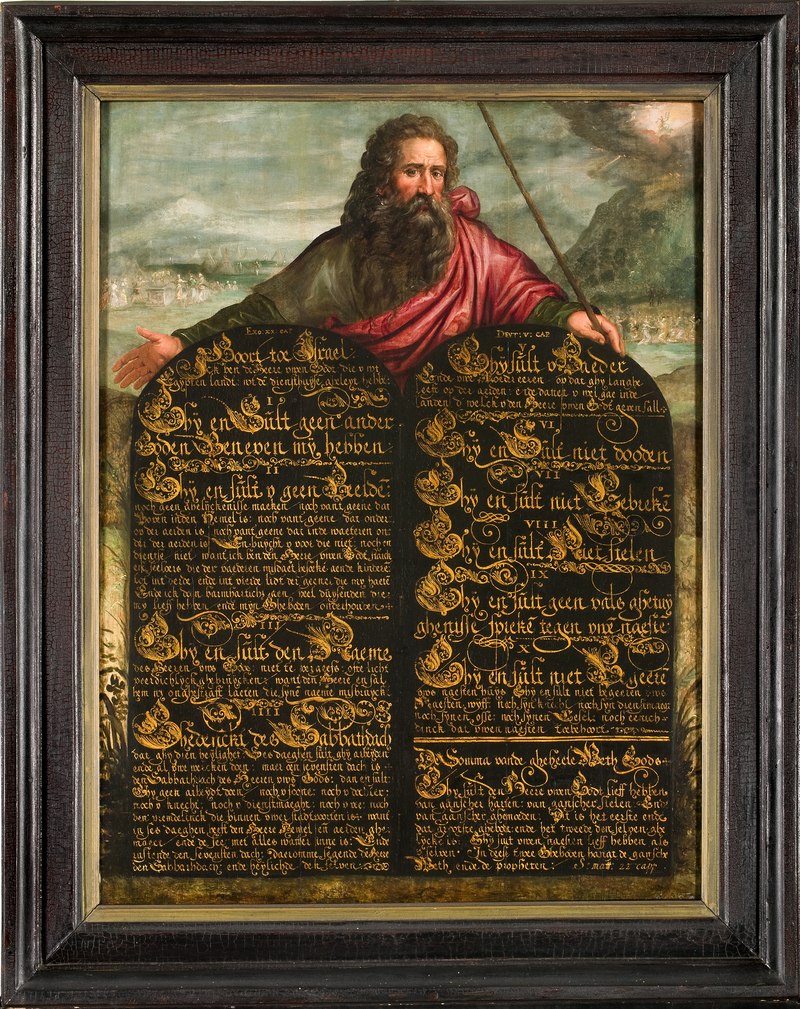Psalm 2: The Messianic Promise of Divine Kingship Correlation To The Gospel
Overview of Psalm 2 and its Significance
Psalm 2 is a kingship psalm found in the book of Psalms, which reflects God’s purposes for His people and the Kingdom of God. It represents the ideals, hopes, and aspirations of the Davidic kingdom, highlighting the divine origin and authority of the reigning king. The psalm begins with the rebellion of the nations against God’s rule, emphasizing the futility of their efforts as God responds by installing His son as king. The nations and ends of the earth are offered to the appointed king, demonstrating the universal scope of God’s kingdom.
An example of the significance of Psalm 2 is seen in the New Testament, in Acts 4:25-26, where the apostles quote Psalm 2:1-2 in reference to the opposition faced by Jesus and His followers. This highlights the enduring relevance and application of Psalm 2 in understanding the challenges faced by believers in the spread of the Gospel.
Furthermore, Psalm 2 plays a vital role in developing a theological understanding of divine kingship. It serves as a foundational text that reveals God’s plan to establish His kingdom on earth and the role of the Messiah in this divine plan. The psalmist captures the tension between human rebellion and God’s sovereign rule, illustrating the futility of opposing God’s anointed King. By understanding the significance of Psalm 2, we gain insight into the Messianic promise and its correlation to the Gospel.
The Messianic Promise in the Context of Divine Kingship
Psalm 2 contains the Messianic promise, anticipating the reign of Jesus Christ and the extension of God’s kingdom throughout the earth.In the Old Testament, the anointed one, or the Messiah, was connected to the Messianic promise, embodying the hope of a future Davidic king who would bring God’s reign to fruition. The New Testament interprets Psalm 2 as fulfilled in Jesus of Nazareth, identifying Him as God’s Son and the fulfillment of the Davidic promises. It is through Jesus that the Messianic promise is fully realized, establishing His divine kingship.
The Messianic promise mentioned in Psalm 2 reveals God’s redemptive plan for humanity. In the midst of rebellion and opposition, God promises to install His anointed King, who will rule over the nations and bring justice to the earth. This promise provides hope and assurance that God’s purposes will ultimately prevail. The New Testament authors recognized Jesus as the fulfillment of this promise, acknowledging His divine kingship and the establishment of God’s kingdom through His redemptive work.
An example of the Messianic promise in the New Testament can be found in Matthew 28:18, where Jesus declares, “All authority in heaven and on earth has been given to me”. This statement echoes the language of Psalm 2, emphasizing Jesus’ divine kingship and His authority over all creation. Through Jesus’ fulfillment of the Messianic promise, the correlation between Psalm 2 and the Gospel becomes evident, highlighting the central role of Jesus in God’s plan of salvation.
Correlation Between Psalm 2 and the Gospel
Psalm 2 correlates with the Gospel, revealing important aspects of Jesus’ identity and mission. It emphasizes Jesus’ kingship, superiority, and His role as a priest-king. The New Testament references Psalm 2 to demonstrate the fulfillment of the Messianic promise in Jesus Christ, affirming His divine authority. The psalm also highlights the themes of submission to Jesus as the appointed King and the consequences of rebellion against Him. Through this correlation, Psalm 2 underscores the significance of Jesus’ role in the redemptive plan of God.
One example of the correlation between Psalm 2 and the Gospel can be seen in Hebrews 1:5, where the writer quotes Psalm 2:7, applying it to Jesus and emphasizing His superiority over the angels. This demonstrates how the New Testament authors understood and applied the Messianic promise in Psalm 2 to Jesus’ identity and mission. The correlation between Psalm 2 and the Gospel is further emphasized by the New Testament’s frequent references to Jesus as the anointed King, the Son of God, and the fulfillment of the Davidic promises.
Additionally, the correlation between Psalm 2 and the Gospel sheds light on the nature of Jesus’ kingdom. It is not an earthly kingdom defined by political power but a spiritual kingdom that encompasses all believers. This understanding aligns with Jesus’ teaching in Luke 17:20-21, where He explains that the kingdom of God is within individuals, not limited to a specific physical location. By recognizing the correlation between Psalm 2 and the Gospel, we gain insight into the nature of Jesus’ kingship and His redemptive work.
Jesus Christ as the Fulfillment of the Messianic Promise
Jesus Christ fulfills the Messianic promise of divine kingship as mentioned in Psalm 2. Hebrews 1:5 emphasizes the unique relationship between Jesus and God the Father as the Son. Jesus was appointed by God the Father, demonstrating His humility and service. His resurrection and seating at the right hand of God further emphasize His power as a mediator between God and humanity. Jesus’ fulfillment of the Messianic promise solidifies His authority and role as the divine King.
The fulfillment of the Messianic promise in Jesus Christ is evident in various aspects of His life and ministry. His birth and lineage trace back to King David, fulfilling the Davidic promises of a future king. Jesus’ earthly life demonstrated humility and service, as seen in Mark 10:45, where He declares that He came not to be served but to serve and give His life as a ransom for many. This selfless act of sacrifice exemplifies the qualities of a true king who rules with love and compassion.
Furthermore, Jesus’ resurrection and ascension to the right hand of God affirm His divine kingship. After Jesus’ resurrection, He appeared to His disciples and commissioned them to proclaim the Gospel and make disciples of all nations, signifying His authority as the risen King. His seating at the right hand of God symbolizes His exalted position and His role as the mediator between God and humanity. This mediatorial role is essential for the fulfillment of the Messianic promise, as Jesus intercedes on behalf of believers and provides the means for salvation.
Implications of Divine Kingship for Salvation
Divine kingship has profound implications for salvation. Taking refuge in Jesus the King brings blessings and the assurance of God’s protection and provision. Proclaiming the Gospel and the hope of Jesus’ second coming are emphasized in Psalm 2, highlighting the urgency of sharing the message of salvation and the anticipation of Christ’s return. The establishment of God’s Messianic Kingdom and the Day of the Lord, as mentioned in Psalm 2, serve as reminders of the ultimate fulfillment of God’s redemptive plan and the hope we have in Jesus.
The implications of divine kingship for salvation extend to both the present and the future. In the present, acknowledging Jesus as the divine King and submitting to His authority brings blessings and the assurance of eternal life. This is exemplified in Romans 10:9-10, where Paul writes that confessing Jesus as Lord and believing in Him leads to salvation. By recognizing Jesus as the divine King, we enter into a relationship with Him that brings forgiveness, reconciliation with God, and the indwelling of the Holy Spirit.
Looking towards the future, divine kingship assures believers of the ultimate triumph of God’s kingdom.The establishment of the Messianic Kingdom and the Day of the Lord mentioned in Psalm 2 point to a time when Jesus will reign in full glory and every knee will bow before Him. This anticipation of Jesus’ second coming motivates believers to proclaim the Gospel and to live in light of the hope that is found in Him. It is through divine kingship that salvation is made possible, and it is through the proclamation of the Gospel that others can come to know the saving grace of Jesus Christ.
Old Testament Hope in Psalm 2
The figure of the anointed one in the Old Testament, connected to the Messianic promise, is a subject of debate. However, Psalm 2 offers insight into the nature of Old Testament hope, depicting an ideal Davidic king who embodies God’s reign for the sake of the righteous. The placement of Psalm 2 near the beginning of the Psalter is significant, setting the tone for the themes of kingship and divine rule throughout the book. Through Psalm 2, the Old Testament expresses the longing for a future king who would fulfill God’s promises and establish His kingdom.
The hope expressed in the Old Testament, particularly in Psalm 2, finds its fulfillment in the person of Jesus Christ. The psalmist’s description of an ideal Davidic king aligns with the qualities and mission of Jesus as the divine King. The New Testament authors recognized the connection between Psalm 2 and Jesus, interpreting the psalm as a prophecy fulfilled in His life, death, and resurrection. This understanding of Old Testament hope in light of Jesus’ fulfillment provides believers with confidence in God’s faithfulness and His ability to bring about His promises.
An example of the Old Testament hope found in Psalm 2 can be seen in Isaiah 9:6-7, where the prophet Isaiah prophesies about a child who will be born and will reign on David’s throne with justice and righteousness. This passage echoes the themes of kingship and divine rule found in Psalm 2, providing further evidence of the anticipation of a Messianic king in the Old Testament. The connection between Psalm 2 and Isaiah 9:6-7 strengthens the theological understanding of Old Testament hope and its fulfillment in Jesus Christ.
The Messianic Kingdom Foretold in Psalm 2
Psalm 2 serves as a prophecy of the coming Messianic Kingdom on Earth. The “King” mentioned in the psalm refers to David’s greater Son, the Messiah. The book of Revelation also alludes to Psalm 2, describing future conspiracies against God’s Messianic Kingdom. The fulfillment of the Messianic promise in Jesus Christ serves as a testimony to the establishment of God’s kingdom and the ultimate triumph of His reign.
The Messianic promise of the coming kingdom, as foretold in Psalm 2, finds its ultimate fulfillment in Jesus’ second coming. The book of Revelation provides a vivid portrayal of the future conspiracies against God’s Messianic Kingdom, culminating in Jesus’ return to defeat His enemies and establish His reign. The imagery and language used in Revelation draw upon the themes and promises found in Psalm 2, reinforcing the Messianic hope and the certainty of God’s ultimate victory.
An example of the foretelling of the Messianic Kingdom in Psalm 2 can be found in Revelation 11:15, where John writes about the loud voices in heaven declaring, “The kingdom of the world has become the kingdom of our Lord and of his Christ, and he shall reign forever and ever”. This proclamation echoes the language and imagery of Psalm 2, affirming the fulfillment of the Messianic promise in Jesus’ establishment of His kingdom. The Messianic Kingdom, as foretold in Psalm 2, provides believers with the assurance that God’s reign will ultimately be established, and Jesus will rule with authority and righteousness.
God’s Mockery, Wrath, and Love in Psalm 2
Psalm 2 portrays God’s mockery and laughter towards His enemies, those who oppose His rule. World leaders are warned to serve Yahweh and kiss the Son or face His wrath. This psalm reveals the multifaceted nature of God’s character, as both a God of wrath and a God of love. It is through His love that He sent His Son, Jesus, to die for humanity, offering salvation and reconciliation.
The portrayal of God’s mockery and laughter towards His enemies in Psalm 2 highlights His sovereignty and authority over all creation. Despite the rebellion and opposition faced by His anointed King, God remains unshaken and in control. This portrayal serves as a reminder that God’s purposes will ultimately prevail and that those who oppose Him will face His righteous judgment.
While Psalm 2 emphasizes God’s wrath towards the rebellious, it also reveals His love and desire for reconciliation. God’s warning to world leaders to serve Him and kiss the Son carries an invitation to submit to His authority and experience the blessings that come from taking refuge in Jesus, the divine King. It is through Jesus’ sacrificial death on the cross that God’s love is demonstrated, providing a way for humanity to be saved from the consequences of sin.
An example of God’s love and His offer of salvation can be found in John 3:16-18, where Jesus speaks about God’s love for the world and the provision of eternal life through faith in Him. This passage demonstrates the harmony between God’s love and His righteous wrath, as it is through Jesus’ sacrifice that God’s wrath is appeased and His love is extended to all who believe in Him.
Conclusion
In conclusion, Psalm 2 holds great significance in relation to the Messianic promise of divine kingship. It reflects God’s purposes for His people and the establishment of His kingdom on Earth. Through the correlation between Psalm 2 and the Gospel, we see the fulfillment of the Messianic promise in Jesus Christ, who reigns as the divine King. This divine kingship has implications for salvation, emphasizing the importance of proclaiming the Gospel and the hope of Jesus’ second coming. Psalm 2 serves as an Old Testament prophecy, offering hope and anticipation for the future Messianic Kingdom and highlighting the complex nature of God’s character. By understanding the theological depth and significance of Psalm 2, we are able to appreciate the Messianic promise of divine kingship and its correlation to the Gospel, ultimately leading to a deeper understanding of God’s redemptive plan for humanity.
#Messianicprophecy #Psalm2interpretation #Divinekingship #Messianichope #Davidiccovenant #Biblicalprophecy #JesusasMessiah #OldTestamentprophecy #Messianicfulfillment #SonofGod #Universalreign #MessiahinPsalms #Messianiclineage #Messianicdeclaration #Divineintervention #WorshipoftheMessiah #TheLord’sAnointed #PropheticPsalms #Messianicanticipation #SalvationthroughtheMessiah



